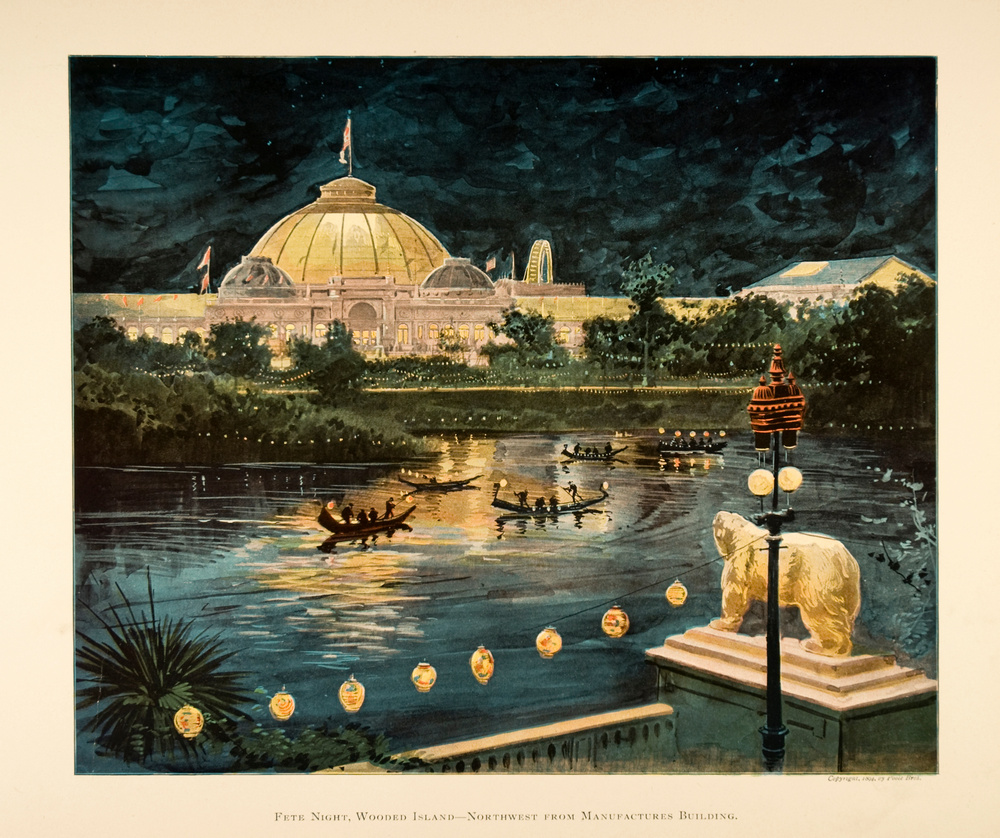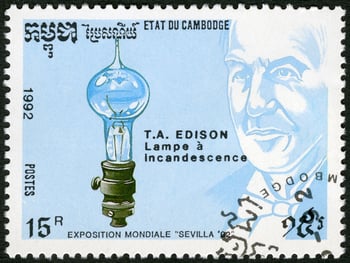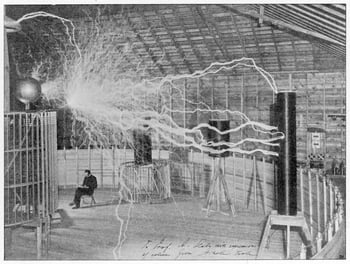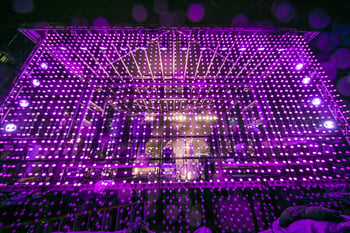by PORT on Nov 21, 2022 8:00:00 AM

It was May 2, 1893 – the second day of the Chicago World’s Fair. That afternoon, President Grover Cleveland pushed a button to turn on the electricity that brought the fair whirring to life. That night, when darkness cloaked the Windy City, an even more spectacular scene unfolded. Thousands of tiny light bulbs came aglow, creating a gorgeous tableau in the dark sky.
“A blaze of lights shot up to the heavens and was mirrored back into the waters of the lagoon and basin and from the white sides of the neighboring buildings,” the Chicago Daily Tribune wrote at the time.
But perhaps even more captivating than the carnival lighting is the electrifying drama that had taken place behind the scenes leading up to this historic day – the race to see who's electric lights would illuminate the world.
War of the Currents
 What became known as the “War of the Currents” was between Thomas Edison, for whom no introduction is required, and Serbian-American engineer and physicist, Nikola Tesla. And, yes, that same Tesla is the namesake of the electric car company we all know today.
What became known as the “War of the Currents” was between Thomas Edison, for whom no introduction is required, and Serbian-American engineer and physicist, Nikola Tesla. And, yes, that same Tesla is the namesake of the electric car company we all know today.
Tesla came to the United States in 1884 and went to work for Edison, helping him create electrical circuits for homes and municipalities. The two inventors disagreed about which type of current was safest and most reliable for widespread use.
Tesla believed that his alternating current, in which electricity can change direction at regular intervals, would distribute electricity more easily without requiring transmission stations across a city. Edison bet on his direct current, which flows in only one direction. The direct current was already widely used but required small power plants throughout cities to relay the current.
According to the story of this famous rivalry, Edison promised Tesla $50,000 if he could make his machines more efficient. When Tesla made significant progress, Edison laughed off the payment, and never made good on his pledge. Tesla quit his job at Edison Machine Works and struck out on his own.
Competing Rivals
 In 1883 when Tesla successfully sold a patent for his AC currents to Edison’s rival, George Westinghouse, Edison retaliated by claiming that it was much less stable than his DC current.
In 1883 when Tesla successfully sold a patent for his AC currents to Edison’s rival, George Westinghouse, Edison retaliated by claiming that it was much less stable than his DC current.
A few years later two companies competed to win the contract to power the Expo site – General Electric, with its DC system based on Edison’s inventions, and Westinghouse’s AC system, based on Tesla’s innovation.
The winner of the “War of Currents” was Westinghouse. General Electric lashed out by prohibiting the use of its Edison bulb at the event, but Westinghouse outsmarted the company by developing its double-stopper bulb.
Today, we use AC and DC, proving both inventors were prescient. While our electricity is mostly powered by AC, computers, LEDs, solar cells, and electric vehicles all run on DC power.
PORT: We Light Your World
PORT has more than 37 years of experience providing innovative, customized lighting solutions for businesses and events. We incorporate the latest lighting technology and techniques so your project turns out just right. We pride ourselves on our team culture and our ability to individualize designs for every client, bringing your wildest imaginings to dazzling light. Thomas Edison and Nikola Tesla would be proud!
 Our services include:
Our services include:
We would love to tell you more about our bright ideas.
Contact us for a consultation!
 In 1883 when Tesla successfully sold a patent for his AC currents to Edison’s rival, George Westinghouse, Edison retaliated by claiming that it was much less stable than his DC current.
In 1883 when Tesla successfully sold a patent for his AC currents to Edison’s rival, George Westinghouse, Edison retaliated by claiming that it was much less stable than his DC current.  Our services include:
Our services include:




Comments (1)